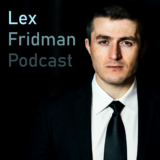Sergey Levine is a professor at Berkeley and a world-class researcher in deep learning, reinforcement learning, robotics, and computer vision, including the ...
Peter Singer is a professor of bioethics at Princeton, best known for his 1975 book Animal Liberation, that makes an ethical case against eating meat. He has ...
Matt Botvinick is the Director of Neuroscience Research at DeepMind. He is a brilliant cross-disciplinary mind navigating effortlessly between cognitive ...
Robert Langer is a professor at MIT and one of the most cited researchers in history, specializing in biotechnology fields of drug delivery systems and tissue ...
David Patterson is a Turing award winner and professor of computer science at Berkeley. He is known for pioneering contributions to RISC processor architecture ...
Ben Goertzel is one of the most interesting minds in the artificial intelligence community. He is the founder of SingularityNET, designer of OpenCog AI ...
Steven Pressfield is a historian and author of War of Art, a book that had a big impact on my life and the life of millions of whose passion is to create in ...
Joscha Bach is the VP of Research at the AI Foundation, previously doing research at MIT and Harvard. Joscha work explores the workings of the human mind, ...
Karl Friston is one of the greatest neuroscientists in history, cited over 245,000 times, known for many influential ideas in brain imaging, neuroscience, and ...
Sertac Karaman is a professor at MIT, co-founder of the autonomous vehicle company Optimus Ride, and is one of top roboticists in the world, including robots ...
- « Previous Page
- 1
- …
- 37
- 38
- 39
- 40
- 41
- …
- 43
- Next Page »

